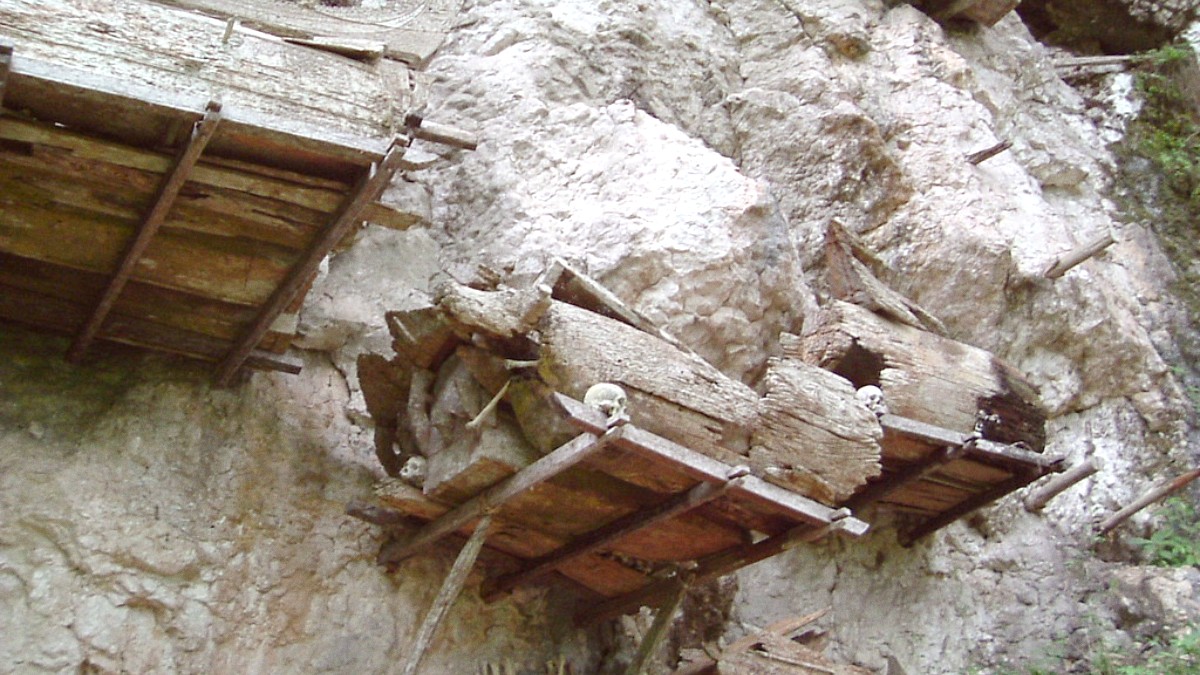
Sulawesi, Indonesia
Explore the region's natural beauty through a range of physical activities.
Leisurely walks through rice paddies around villages like Ke'te Kesu'. Short, accessible trails to various burial sites, generally flat or gently sloping.
Day treks connecting several villages, for example, from Batutumonga to Lokomata. Longer walks through varied terrain, may involve uphill sections and uneven paths.
Multi-day treks through remote villages and highland areas. Require a local guide, good physical fitness, and suitable gear. Deep immersion into the natural and cultural landscape.
Tana Toraja is not a main wildlife viewing destination. Expect common birds, lizards, and domestic animals like buffaloes and pigs in their natural settings. For specialized wildlife observation, other regions of Indonesia are more suitable.
Tana Toraja offers profound cultural immersion through its traditional arts, ceremonies, and community interactions.
Most significant cultural events. Elaborate, multi-day ceremonies involve animal sacrifice, traditional dances, and complex rituals. Timing is unpredictable. A local guide is useful for understanding rituals and etiquette.
Not always performed on a regular schedule for tourists. Traditional dances may be arranged for groups upon request or during local festivals and special events.
Ma'Nene: A unique ritual of cleaning ancestral remains, occurring every few years (usually in August). Highly localized. Rambu Tuka': Joyful thanksgiving ceremonies, less common for tourists to witness.
Many guesthouses are locally owned and operated, directly supporting local communities. Some guides lead tours focused on interacting with villagers, offering insights into daily life.
While no formal language schools exist, learning basic Indonesian phrases is very helpful for interaction with locals and shows respect. Locals often appreciate the effort.
Engaging with the local community beyond typical tourist interactions creates a more memorable and authentic travel experience.
Tana Toraja is more about cultural immersion and outdoor activities than dedicated wellness retreats.
As an inland region, Tana Toraja has no beaches. Some larger hotels do have swimming pools that guests can use for relaxation.
The peaceful rural setting and scenic landscapes naturally invite relaxation and quiet contemplation.
Limited to a few cafes or hotel restaurants in Rantepao that might have occasional live music, usually local bands.
No formal theater. Traditional performances are usually part of ceremonies or special cultural events, not regularly scheduled shows.
Nightclubs and dedicated dancing venues are not present. No bar districts or organized pub crawls. Alcohol consumption is less prevalent.
Shopping in Tana Toraja centers on local crafts, textiles, and agricultural products, creating authentic souvenirs.
Known for traditional weaving, this village allows opportunities to see artisans at work and purchase directly from them.
This village features wood carving workshops where you observe local craftsmen creating intricate designs.
Purchasing directly from artisans supports local heritage and livelihoods.
Shipping larger items arrange via local postal services or cargo companies from Makassar. Be aware of customs regulations in your home country regarding cultural artifacts and agricultural products to avoid issues upon re-entry.